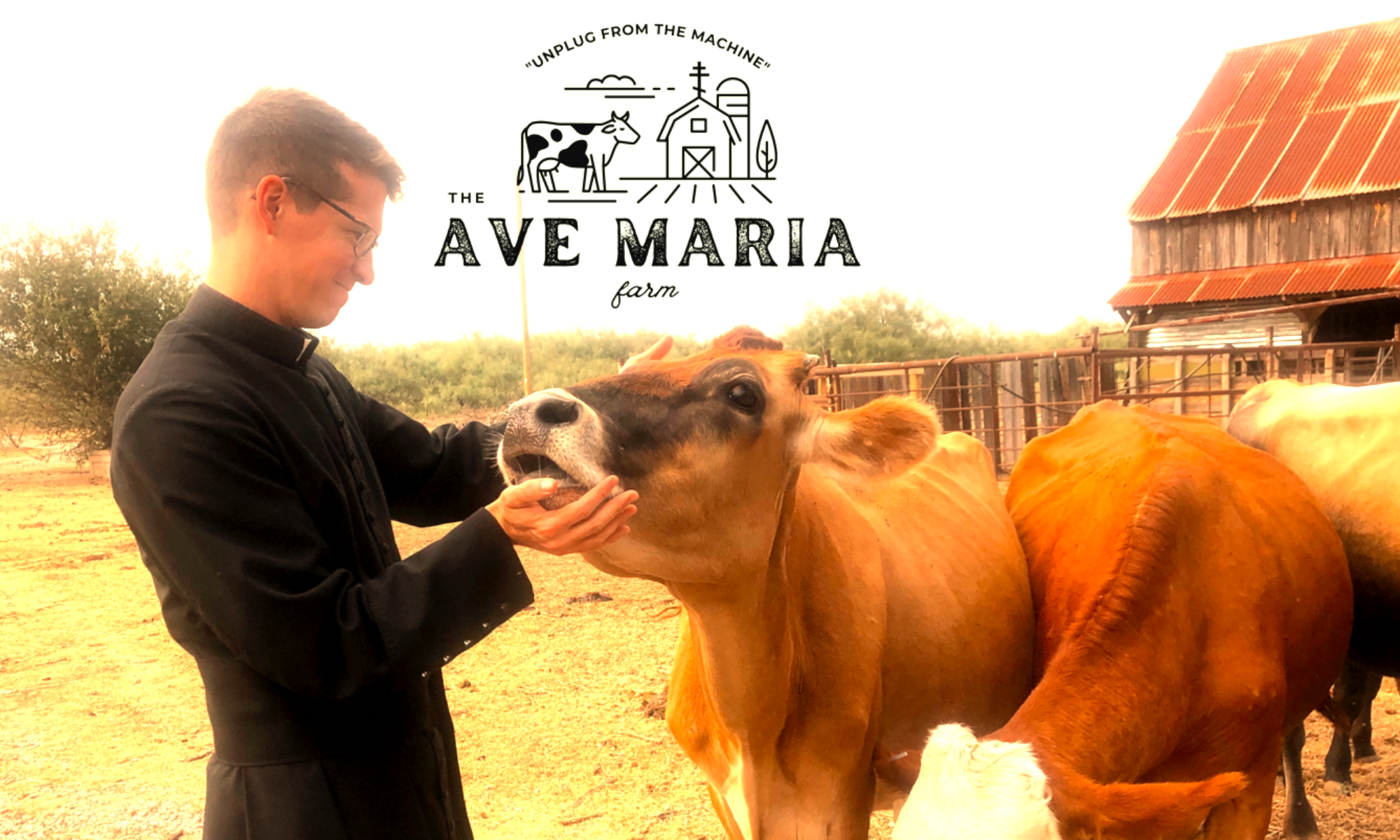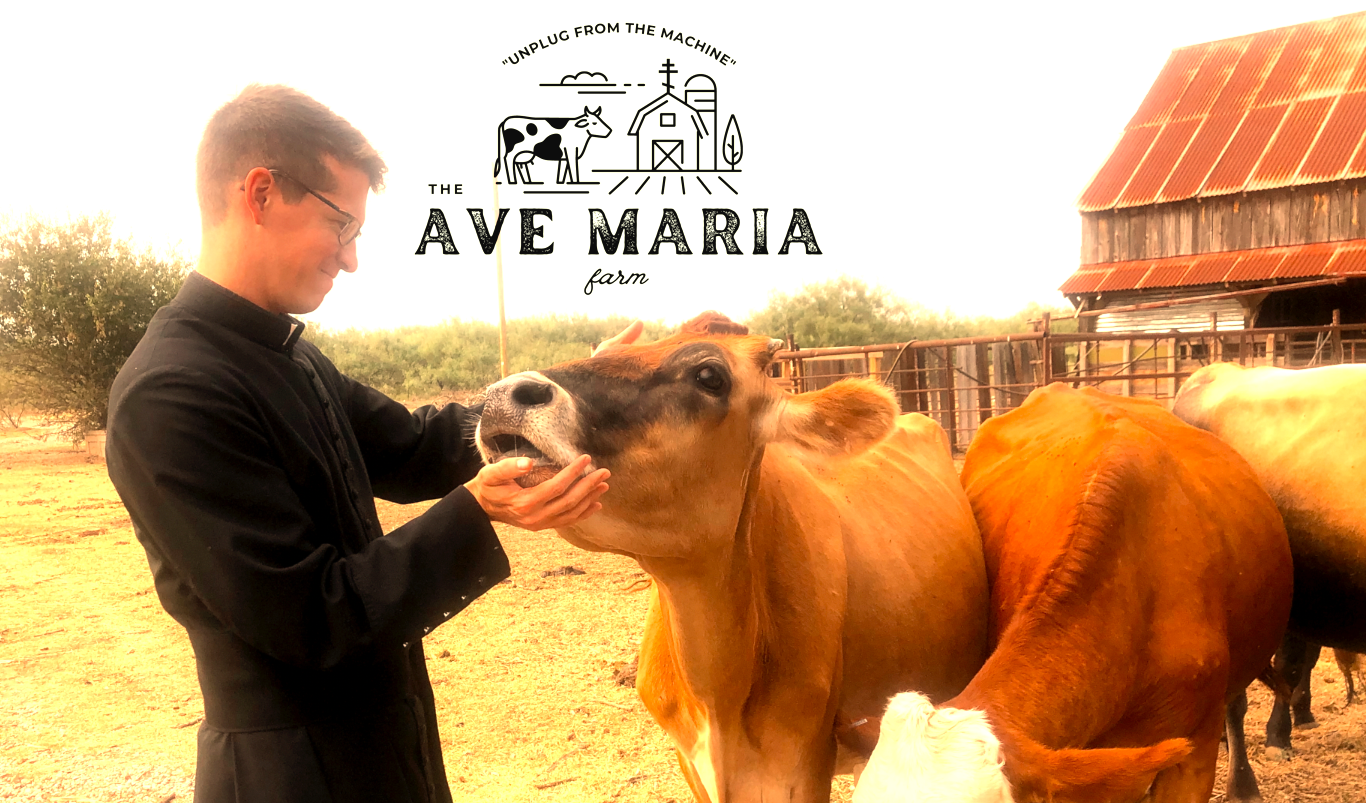Unplug from the Machine. Tune in to God’s Reality.
What would it look like to life a life centered around sacramental worship, classical values, art, leisure, and a healthy relationship with nature and dirt? Something is sick in our modern lifestyle. The moral and cultural foundations of society are crumbling, but what are the underlying reasons? Where did we go wrong from the start, and how can we get back to balance? There is a lot of talk about the problems in society, but where do we go from here, and how radical does this have to be?
My wife and I began the project in 2O2O. We felt it was time to step back and reprioritize, and, along the road, to join up with others who share the same vision. At the moment, you will find here on our homestead the main farmhouse and three tiny homes, a pole barn and community garden, and a small herd of cattle, sheep, chickens, and Bonita, the family donkey.
We built the tiny homes to provide a place for young adults enjoying a gap year, studying at college, or just along for the adventure, who want to start their adult life on a solid foundation, experience community, and learn basic farming skills. We are also a 15 minute drive from Midwestern State University and our parish, St. Benedict Orthodox Church, in Wichita Falls, which offers daily Mass and rosary services, catechism, spiritual life classes, and a classical co-operative school for homeschooling families. We are building a life grounded on work, prayer, dialogue, and community, and we welcome you to get involved.
How is a soul formed in Christ? You have to begin with soil — the soil of the soul.
In 1983, a professor named John Senior wrote a little book, “The Restoration of Christian Culture.” Here’s a line worth taking note:
“Our Lord explains in the Parable of the Sower that the seed of His love will only grow in a certain soil — and that is the soil of Christian Culture, which is the work of music in the wide sense, including as well as tunes that are sung, art, literature, games, and architecture — all so many instruments in the orchestra which plays day and night…and if it is disordered, then the love of Christ will not grow.”
For over a millenium, the Church was the driving force behind culture. Today, our culture is unashamedly secular. With few exceptions, we Christians have walked hand in hand with this culture. Ashamed to step out of the box, we dance to the same cacophic tune played by the priests of Holywood and Silicon Valley. Addicted to our gadgets and conveniences as much everyone else around us, we inhale and exhale the same godless worldview as our next door neighbors, rarely aware of the influence of worldliness in our hearts. Mesmerized by frenzied rush and franatic distractions, we are stuck, and we hardly know how to move forward.
“It is an obvious matter of fact,” John Senior writes, “that here in the United States now, the Devil has seized these instruments to play a danse macabre, a dance of death, especially through what we call the ‘media,’ the film, television, radio, record, book, magazine and newspaper industries. The restoration of culture, spiritually, morally, physically, demands the cultivation of the soil in which the love of Christ can grow, and that means we must, as they say, rethink priorities.”
So what does it look like to be an authentic Christian community today? Christianity has only ever really thrived in face-to-face communities and in real neighborhoods where one’s shared lifestyle revolves around the chiming of church bells, the recitation of the Angelus, and shared meals on saints days.
How can we recover healthy boundaries with technology? I do not mean creating newer apps that flash alongside the unrelenting notifications, but turning off our phones and rediscovering the archaic art of conversation, of listening to crickets while sharing a bottle of wine, or tilling soil in a community garden.
How can we be the masters of our tools again, and no longer the sterile servants of the ruling technocrats?
What is real, delightful leisure, rather than cheap and stupefying entertainment?
What is a life saturated in wonder and reverence, rather than a meaningless march to the beat of nihilistic drums?
What steps are necessary for creating good, old-fashioned family life — a life of sitting around the hearth again and reading literature, of singing folk songs around the piano, of involving children in gathering the eggs and watering the plants that will bring food to the dining table?
What is the good life? How can we live it?
Welcome to the Ave Maria Farm.

